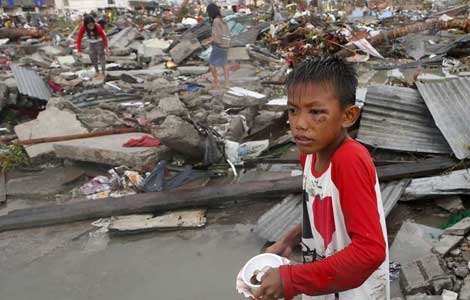Model city targets healthy growth
Updated: 2013-11-12 07:45
By Shan Juan (China Daily)
|
||||||||
China has unveiled a new model for a city that can be economically successful while also being both environmentally friendly and good for public health.
The model will be tested in Zhenjiang, Jiangsu province, with the goal of demonstrating excellence in achieving harmony across a spectrum of fundamental human and societal needs.
The regional project is aimed at forestalling potential "city ills" as China undergoes rapid urbanization - a process, experts say, that brings both merits such as new growth and nuisances such as ruthless power consumption, pollution and property bubbles.
The task is being undertaken by city government in Zhenjiang, a city measuring 220 square kilometers and housing about a million residents.
"Principles of environmental protection, people's health improvement and resource and energy conservation will be upheld during planning and construction to establish a new type of city," said Professor Zhou Muzhi of Tokyo Keizai University.
Zhou led an international team of designers - more than 50 urban planning experts from China, Japan and Europe.
Plans include a streetcar network for mainstream transportation and large natural areas for ecological diversity. About 65 percent of the Zhenjiang's land area will be preserved as farmland, water and greenbelt.
Moreover, a city energy management system will be integrated to help with power conservation.
Noted Italian architect Mario Bellini, who is a member of the design team, said the new city will feature five island-like modules surrounded by farmland, water and greenbelt to facilitate residents' comfort, health and work.
A medical cluster will be developed in the city as an economic engine.
According to Zhou, construction will be in stages and is expected to be completed by 2030.
"Ecological civilization will be supplemented by the high-end medical and healthcare industry from Japan and will attract related investment," Zhu Xiaoming, mayor of Zhenjiang, said.
The medical cluster will include large specialty hospitals, medical research academies, medical education institutions and supplementary infrastructures such as hotels, according to Yoshinori Yokoyama, a noted social systems architect in Japan who is one of the project designers.
He said that the medical cluster, coupled with sound policy and a firm financial foundation, could be a positive influence on the delivery of healthcare services as well as cost control.
Mao Qun'an, spokesman for the National Health and Family Planning Commission, said recently urban planning was an important element in improving public health.
The Chinese public has begun to pay more attention to environment and health issues, he noted, citing results from a recent nationwide survey. The survey, conducted by the commission, found that health awareness among the Chinese people had steadily improved in recent years, as had access to medical services in a country whose medical reform is ongoing.
But a gap still existed between the rural and urban population, he said.
shanjuan@chinadaily.com.cn
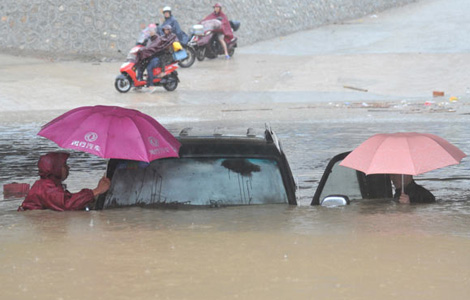
 Typhoon Haiyan claims 6 in S. China
Typhoon Haiyan claims 6 in S. China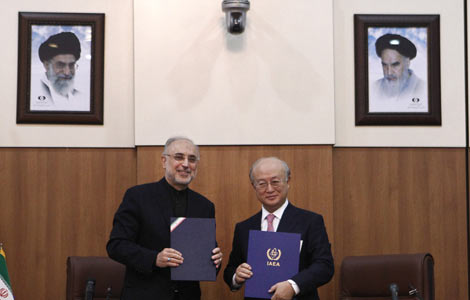
 Iran to give UN inspectors more access to nuclear sites
Iran to give UN inspectors more access to nuclear sites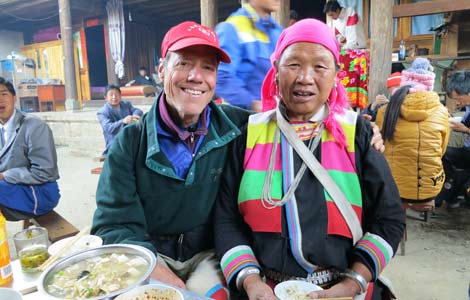
 In love with Yunnan
In love with Yunnan
 Online shopping gala sets records
Online shopping gala sets records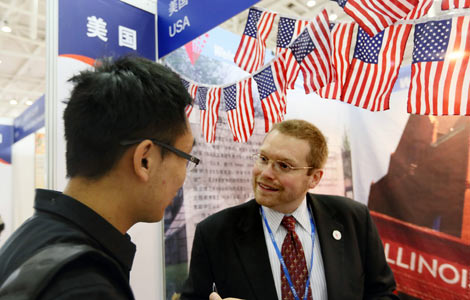
 Report shows jump in Chinese students going to the US
Report shows jump in Chinese students going to the US
 2 killed in Texas party shooting
2 killed in Texas party shooting
 Traditional retail battles websites
Traditional retail battles websites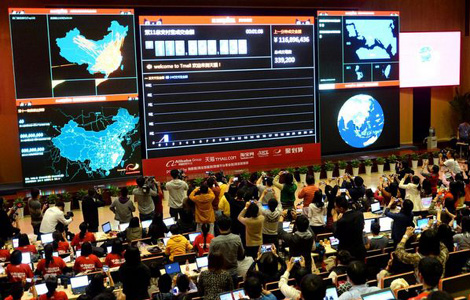
 Singles Day becomes China's Black Friday
Singles Day becomes China's Black Friday
Most Viewed
Editor's Picks

|

|

|

|

|

|
Today's Top News
ABC apologizes again for Kimmel 'joke' debacle
Global talent lacking in China
Journalists lead lonely-heart list
Iran to give UN inspectors more access
Reform expected to dominate talk at plenum
Real-estate bubble seen bursting
More Chinese students going to US
Online shopping gala sets records
US Weekly

|

|



